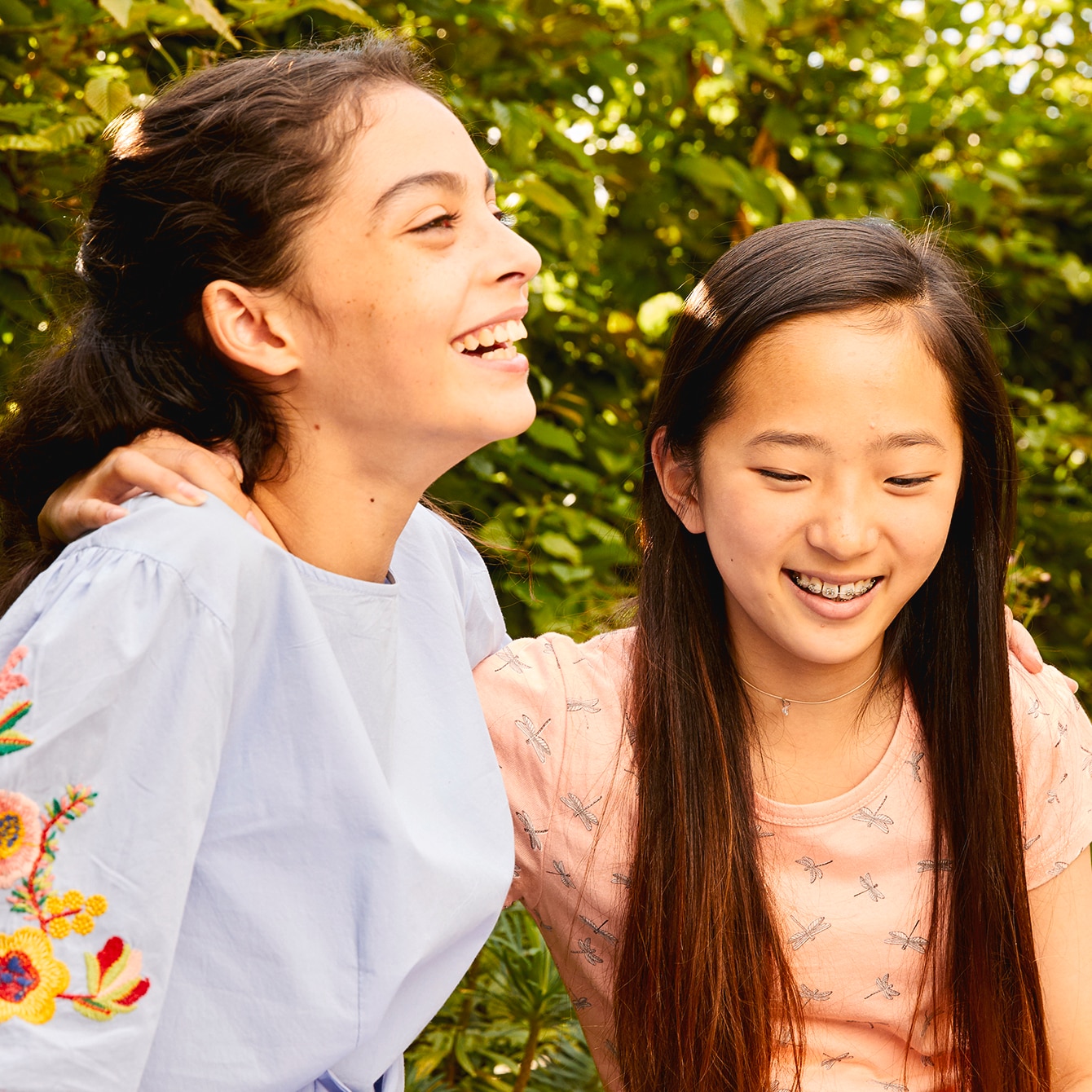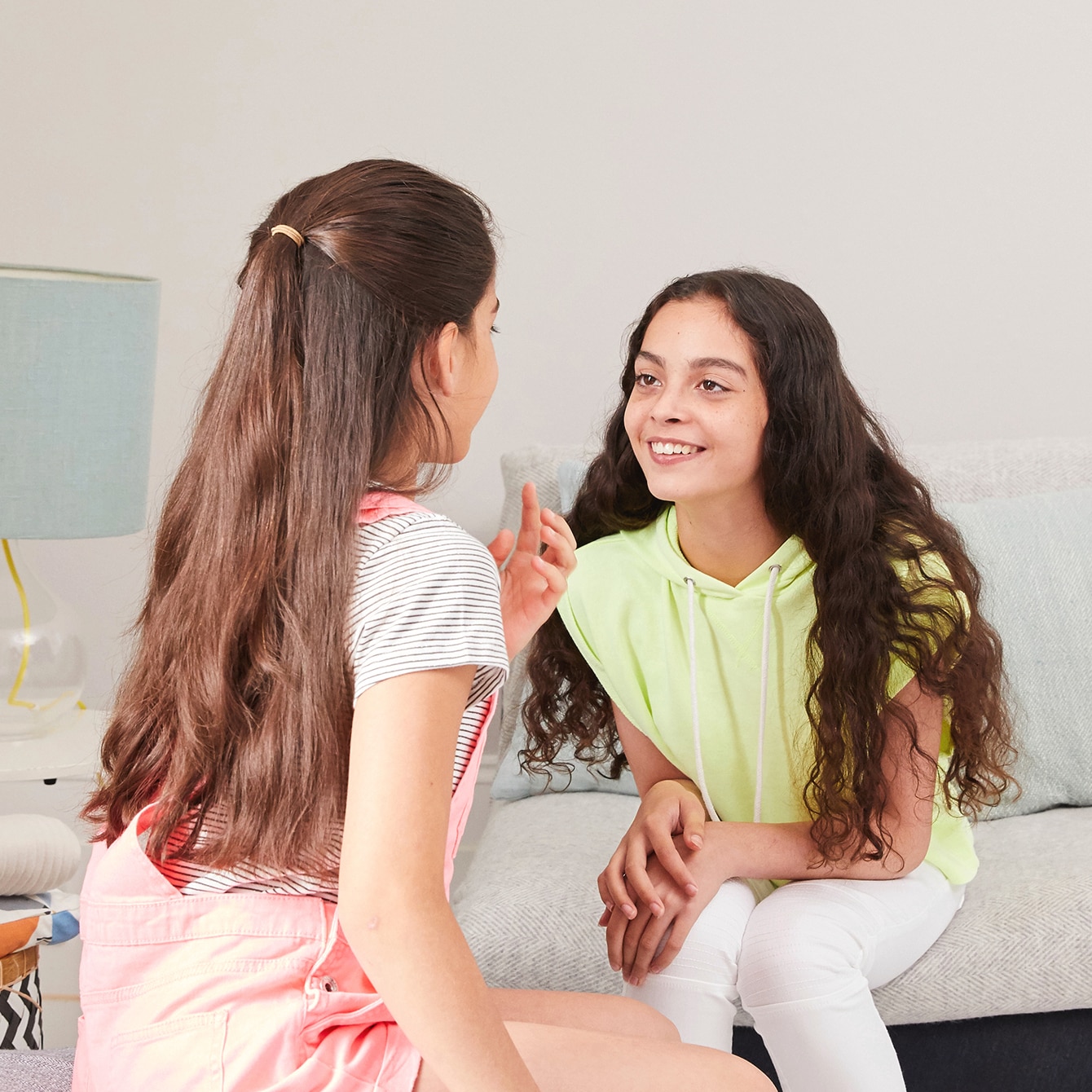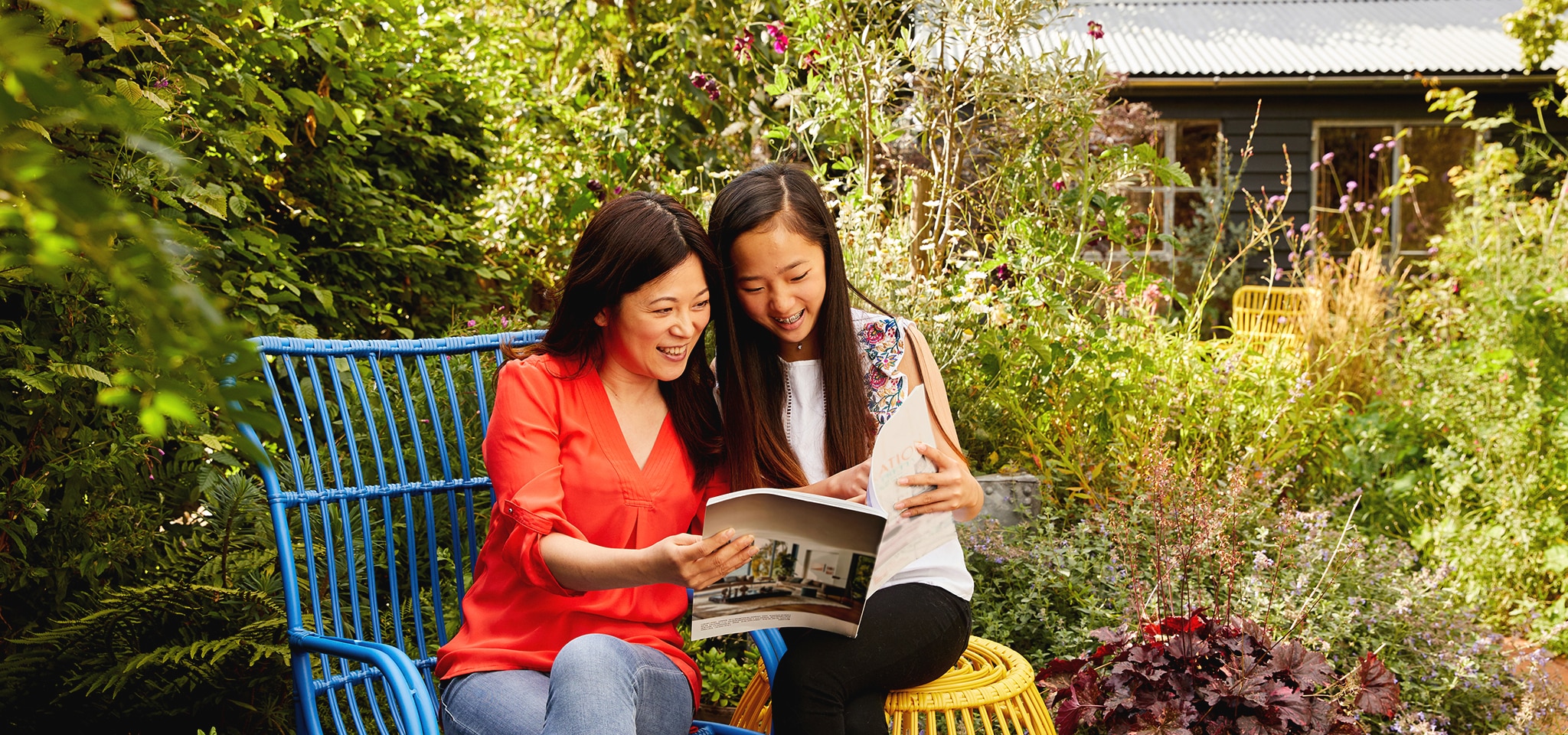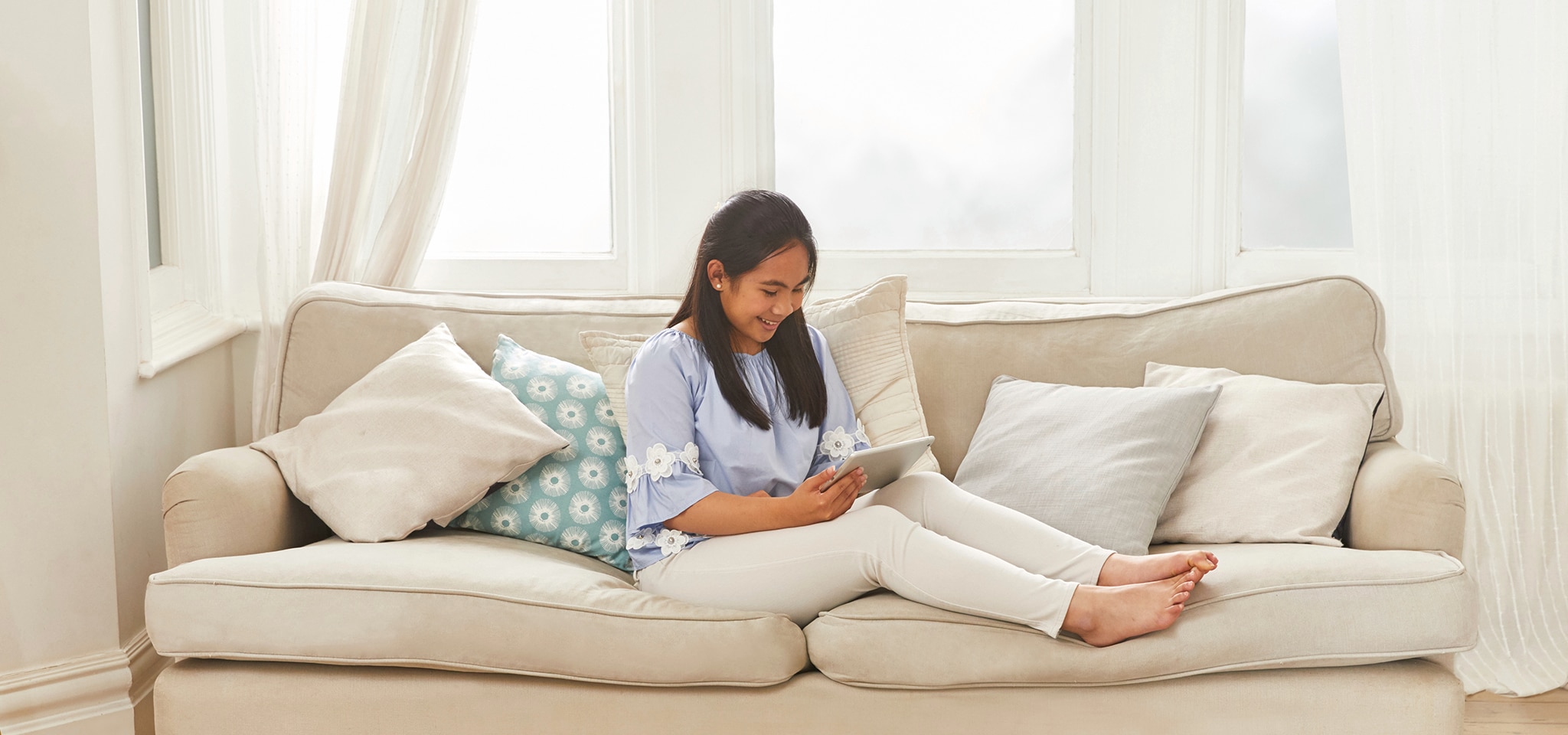During adolescence, your child might want to avoid ‘sticking out’, but there’s no need for them to pretend they're something they're not. Use our action checklist to help your daughter or son resist peer pressure and enjoy being themselves.
"At this point in her life your daughter is noticing the different emotional and physical traits of her peers, comparing herself to her friends, starting to judge these as desirable or undesirable. This is compounded by the media, magazines and movies."
Peer pressure in adolescence
Even as an adult, a situation where you don’t know anyone can be daunting. When young people are thrown into this position, it sparks an internal battle. They desperately want to feel part of the community and ‘fit in’, but at the same time, they're trying to express their individuality and personal style.
“I do think there is peer pressure about looks and clothes at Kirsty’s school,” says mum Gill. “Since puberty and going to secondary school she has become very anxious about how she looks and I think she’s aiming to look ‘just like her friends’."
The tendency for young people to judge on appearance
“Let’s be real: when girls walk into a room, they all check each other out,” says self-esteem coach Dr Tara Cousineau. “At this point in her life your daughter is noticing the different emotional and physical traits of her peers, comparing herself to her friends, starting to judge these as desirable or undesirable. This is compounded by the media, magazines and movies. All of a sudden, the value of a certain type of appearance and personality is amplified.”
Starting at a new school or joining a new team are situations in which these comparisons come to the fore. Young people may begin to experiment with different looks, vocabulary and social behaviour.
These situations can also trigger a massive shift in young people's attitudes towards their bodies and appearance, as they struggle to find their place in their social circles.
What is peer pressure doing to their confidence?
Take heart that these are important situations your child needs to go through to work out who they really, are and what’s important to them. It’s all part of growing up.
However, this can be a particularly vulnerable time for young people's confidence as they figure out their place in the perceived social pecking order. Your son or daughter may be envious of others or find themselves the envy of their peers.
Help your child feel confident about themselves
So what can you do to help your child navigate this tricky territory, value their uniqueness and safeguard their confidence? We’ve put together some practical suggestions in our action checklist. The main thing is to help them understand they shouldn’t let go of all the brilliant things that make them unique just to fit in.
There's a phase when fitting in is the most important thing for a young person. This changes as they mature and develop their own interests, talents and style. Over time, and with your support, they will work out which friends are ‘good’ for them and which aren’t so good.
By helping your son or daughter identify what makes them unique and how they contribute to friendships, you can give them the confidence to be themselves, as well as recognise and appreciate diversity in others.
To protect privacy we’ve changed the names of people whose stories we tell on these pages, but the stories are genuine.




